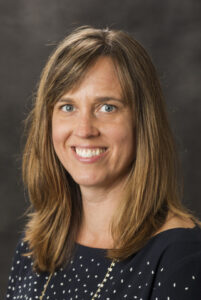State Supreme Courts and the “Major Questions” Doctrine
When a legislative body delegates authority to an administrative agency, it cannot envision every future scenario, and often uses language that is regrettably—but necessarily—imprecise. Take, for example, the power given the Wisconsin Department of Natural Resources to exercise “general  supervision and control over the waters of the state.”[1] Or consider the United States Environmental Protection Agency’s authority to select the “best system of emission reduction” for certain entities emitting air pollution. (The United States Supreme Court analyzed the scope of the latter provision earlier this summer in West Virginia v. EPA). Operationalizing such vaguely worded authority has proven difficult for agencies. Disputes about the true extent of the delegation arise when the agency takes action near the limit of the delegation.
supervision and control over the waters of the state.”[1] Or consider the United States Environmental Protection Agency’s authority to select the “best system of emission reduction” for certain entities emitting air pollution. (The United States Supreme Court analyzed the scope of the latter provision earlier this summer in West Virginia v. EPA). Operationalizing such vaguely worded authority has proven difficult for agencies. Disputes about the true extent of the delegation arise when the agency takes action near the limit of the delegation.
In the legal skirmishes that result, courts sometimes find the agency has gone too far. The most recent, high-profile example of this is the West Virginia case, in which the Court endorsed the “major questions” doctrine. The Court examined EPA’s authority to enact a plan to cut emissions of carbon dioxide from power plants. To some extent, the plan required a “generation shifting” approach mandating a transition from fossil fuels to renewable energy sources such as solar and wind. The Court took a skeptical view of the plan. It held that in certain “extraordinary cases” raising a “major question” of “economic and political significance,” there is good reason to restrain the scope of an administrative agency’s power, especially if Congress had not clearly delegated authority for the agency to take the questioned action. The Court further explained that the doctrine flows from traditional separation of powers principles inherent in the federal constitution. The holding seems likely to restrict the reach of just about any federal agency’s authority.
In light of West Virginia, will state courts adopt state-level equivalents of the “major questions” doctrine, based on the parallel separation of powers principles in state constitutions? In Wisconsin, the answer is not as clear as you might think, particularly in light of two recent Wisconsin Supreme Court opinions rejecting constraints on agency power, even when based on murky conferrals of legislative authority.

 Our Student Contributor for October is 3L Emilie Smith. Emilie is from Green Bay, Wisconsin, and has a strong interest in Business Law and Intellectual Property Law. She currently has a comment pending publication in the Marquette Law Review on the digital recreation of copyrighted tattoos for use on video game avatars. Welcome Emilie!
Our Student Contributor for October is 3L Emilie Smith. Emilie is from Green Bay, Wisconsin, and has a strong interest in Business Law and Intellectual Property Law. She currently has a comment pending publication in the Marquette Law Review on the digital recreation of copyrighted tattoos for use on video game avatars. Welcome Emilie!